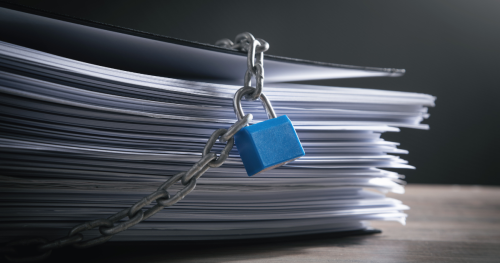 Thanks to Francesco Santini for collaborating on this article
Thanks to Francesco Santini for collaborating on this article
The Court of Justice of the European Union recently affirmed that communications between clients and their attorneys are afforded a broad protection and cannot generally be disclosed in response to requests from the public authorities.[1]
Legal privilege is safeguarded under Art. 7 of the Charter of Fundamental Rights of the European Union (“Charter”),[2] which must be interpreted in conjunction with Art. 8(1) of the European Convention for the Protection of Human Rights and Fundamental Freedoms (ECHR). The Court stated that “whatever the area of law to which it relates, legal advice given by a lawyer enjoys the strengthened protection guaranteed by Article 7 of the Charter to communications between lawyers and their clients.” The conclusion is “justified by the fact that lawyers are assigned a fundamental role in a democratic society, that of defending litigants.”
The controversy stems from a request from the Spanish tax authorities to the Luxembourg authorities regarding documents held by a lawyer in connection with legal advice provided to a Spanish company involved in a corporate-law transaction. The Luxembourg authorities issued an injunction against the lawyer, who invoked legal privilege on the grounds that he was acting as a legal advisor. After failing to comply with a second injunction, the lawyer was fined. The lawyer then appealed to the Luxembourg Administrative Court, which referred several preliminary questions to the Court of Justice, including the question of whether a lawyer can be obligated to provide the requested information notwithstanding the legal privilege.
The Court ruled that legal advice is entitled to enhanced protection, as set forth in Article 7 of the Charter.[3] This interpretation sets a baseline for minimum protection. Lawyers play a fundamental role in a democratic society and their clients have a reasonable expectation that confidentiality and privacy will be guaranteed. An order requiring lawyers to disclose documentation and information pertaining to their client represents a clear infringement of the right enshrined in Article 7 and would effectively weaken the legal protection.
The Court found not only that Luxembourg’s national legislation conflicts with European law, but also that attorney-client privilege must be protected in a broad array of areas of law (beyond corporate-tax law), consistently with Articles 7 and 52 of the Charter.
The Court of Justice’s ruling confirms a trend that has developed through the years in its case-law, aimed at protecting the legal privilege of attorney-client’s communications to ensure an effective protection of the right of defense, a right granted by both the Charter and the ECHR. The Court invokes that right when interpreting EU law and national legislation based on EU law. However, this ruling does not impact the conclusions in Akzo,[4] where the Court held that the confidentiality of attorney-client communication does not apply to communication between a company and its in-house counsel.
In conclusion, this ruling ensures broad protection of legal privilege and confirms that EU and national legislation must be interpreted in accordance with the Charter and the ECHR. Attorney-client privilege is reinforced by the Court’s interpretation, and all clients may now have a reasonable expectation that their communications with their attorneys will not be disclosed without their consent, unless in strict accordance with the exceptions provided in Arts. 7 Charter and 8 ECHR.
[1] Court of Justice, C-432/23, Ordre des avocats du Barreau de Luxembourg, ECLI:EU:C:2024:791.
[2] Art. 7 of the Charter of Fundamental Rights of the European Union reads, “Everyone has the right to respect for his or her private and family life, home and communications.”
[3] The court also cited Article 8 of the European Convention on Human Rights (ECHR), noting that Article 52(3) of the Charter seeks to ensure consistency between the rights established and the corresponding rights guaranteed by the ECHR. Hence, when interpreting the rights guaranteed by Article 7 of the Charter, the court must take into account the corresponding rights guaranteed by Article 8(1) ECHR, as interpreted by the European Court of Human Rights.
[4] Court of Justice, C-550/07, P – Akzo Nobel Chemicals and Akcros Chemicals v European Commission, ECLI:EU:C:2010:512.


